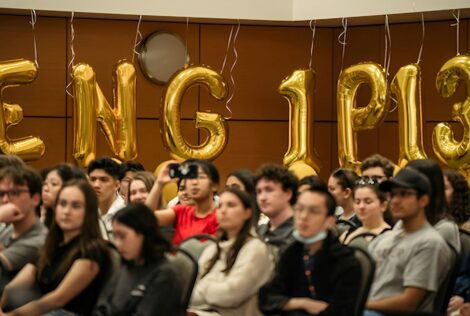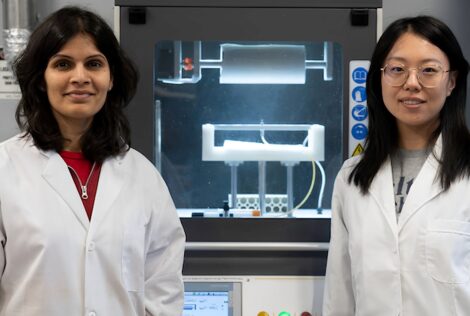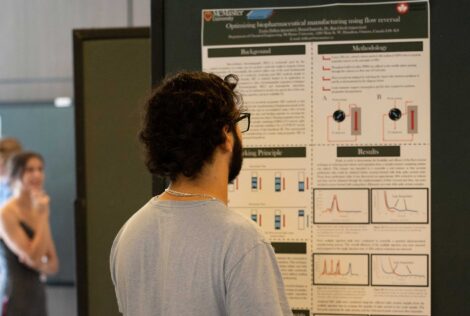
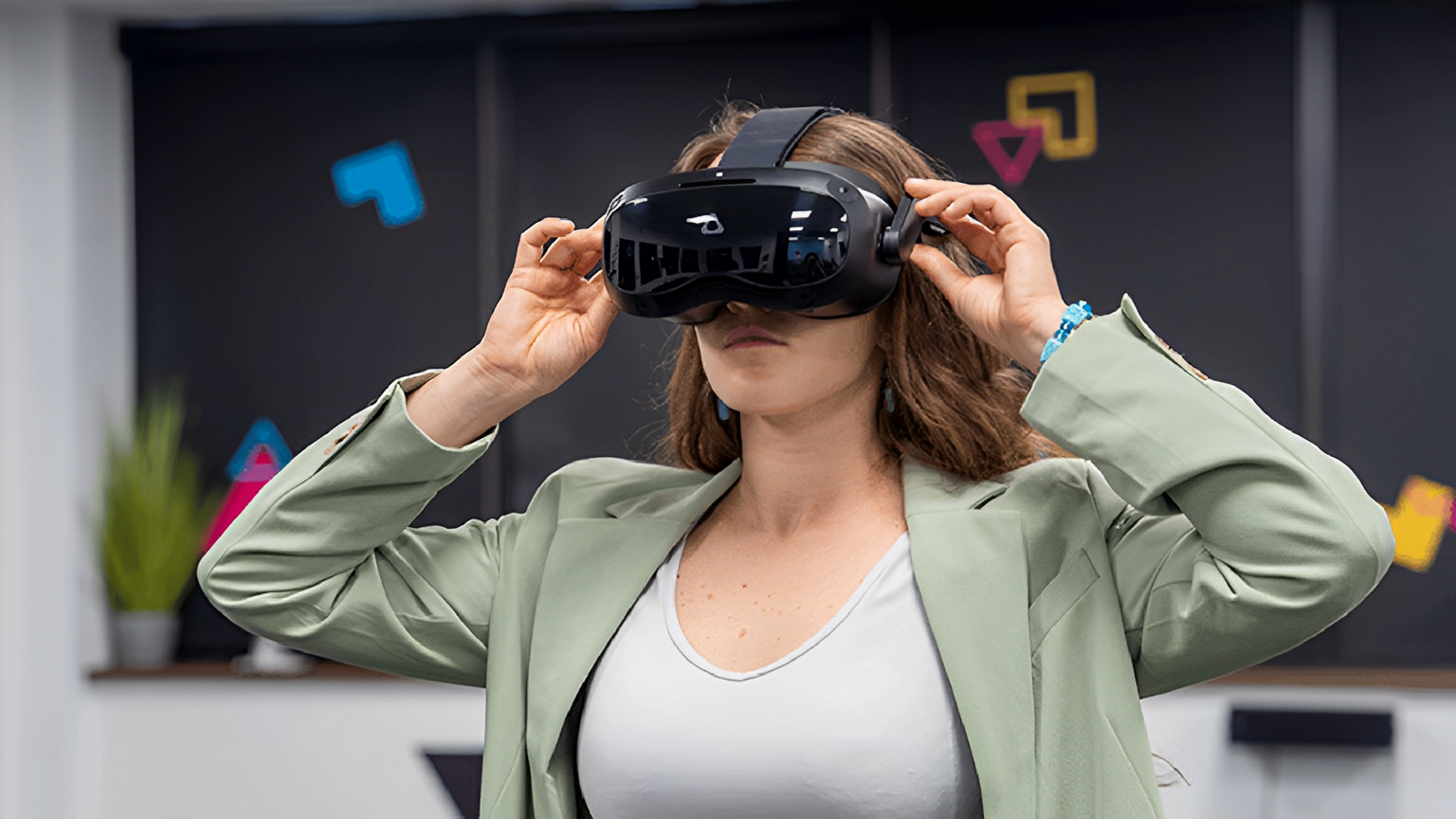
On Thursday, June 1, Virtual Reality (VR) Lab IMRSV@MAC, powered by VIROO®, opened their doors for the official grand opening of their new space.
The 100m2 facility at McMaster Innovation Park was launched in partnership between Spanish VR company Virtualware and the Faculty of Engineering at McMaster. The VR room is the company’s first ever VR lab in Canada.
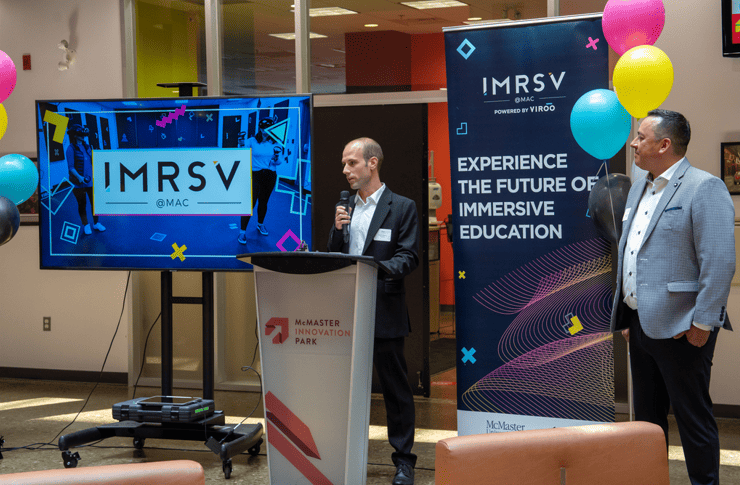
Our mission is to accelerate the adoption of virtual reality in the industry and the enterprise landscape. We are excited to partner with McMaster and introduce our technology to the different companies and industries in Hamilton and around the globe.
McMaster is a partner that is serious about innovation and has a deep history of working with industry partners to introduce new technologies. Together we will utilize this technology to solve real-world problems within industry.
Guests at the grand opening event had the opportunity to explore the facility and experience live demonstrations of VR use cases developed by engineering professor and Canada Research Chair in Transportation Electrification and Smart Mobility, Ali Emadi’s research team from the McMaster Automotive Resource Centre (MARC).
Using VR technology, this team has been developing virtual reality simulations to test and develop the travellers experience in a transit station. Through simulations of station gates, vending machines and validators, they hope to create a completely accessible transportation system experience for diverse travellers.
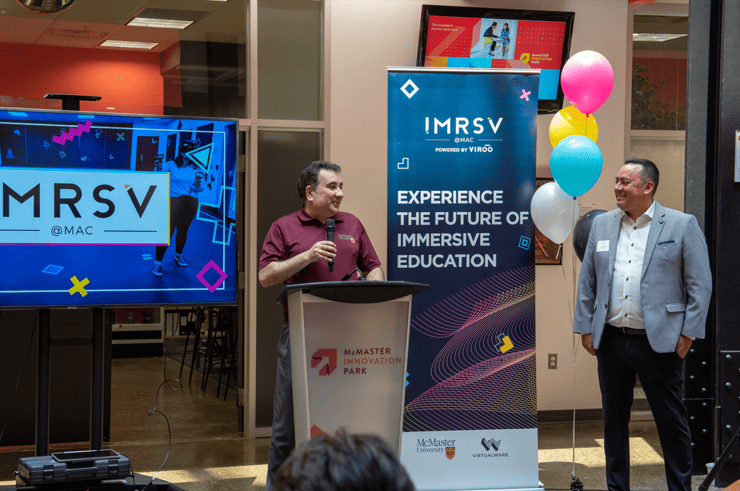
“People are different. They have different abilities and different disabilities,” says Emadi. “What is most exciting about the VR room is that it allows us to put equity, diversity and inclusion at the heart of the artificial intelligence and machine learning work we do as we strive towards creating the smart mobility of the future.”
Members of Emadi’s research team, led by Hanna Haponenko, post-doctoral research fellow at MARC, are already leveraging this new technology. With EDI in mind, Haponenko is leading a team that analyzes common issues different demographics face in transit systems by exploring them in a fully immersive VR environment.
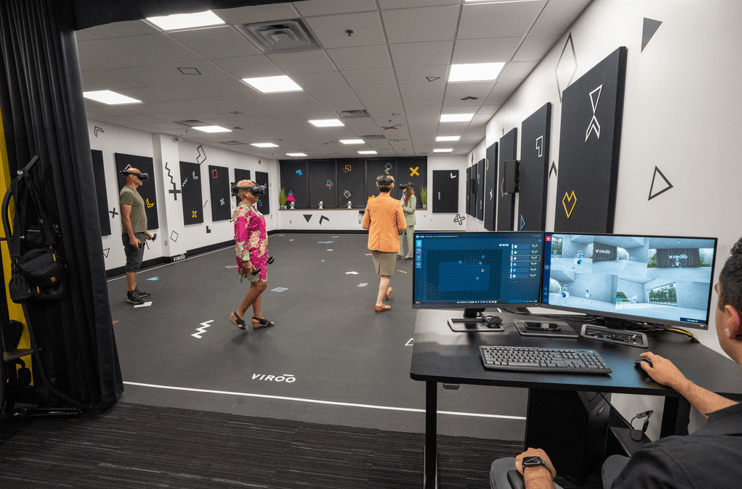
Can someone with a visual impairment use a vending machine properly? Are station gates wide enough for a person in a wheelchair to get through? Can new mothers with strollers travel comfortably and use various transit station machines in the real world? These are the questions the team is using VR to answer and solve.
While traditionally, products in the smart mobility sector are time exhaustive in design, development and release of a product, VR expedites the design and development workflow exponentially. Products are made faster, more efficiently and with user research in mind at early points in the project lifecycle, making it the perfect tool for the smart mobility team and future research groups.
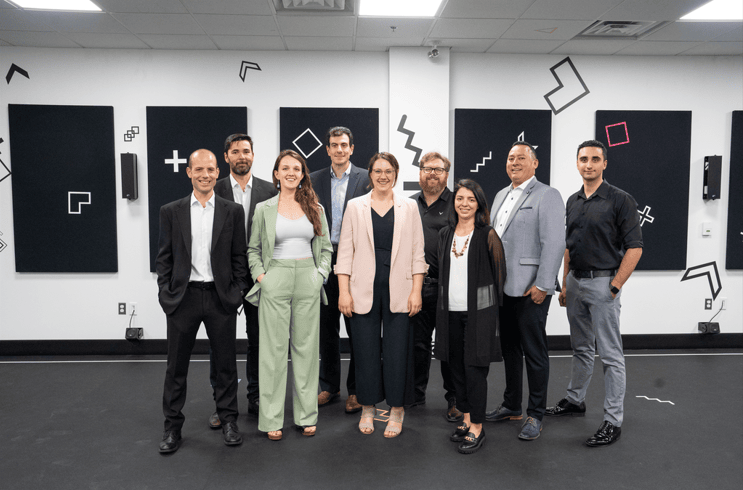
The students and researchers, they get used to developing these new technologies in an optimised manner, and when they go to industry, they can help the industry and push the state-of-the-art for new technologies to be developed.
Integrating student-learning into the new space has already begun.
“We’ve had two students come on board in the past month, and what they’ve been able to do in one week, before our partnership with Virtualware, before this new VR suite, it would have taken them two months to do,” says Haponenko.
Haponenko was recently awarded a UITP Young Researcher Award in recognition of her research and leadership in smart mobility with one project using Virtualware’s VR technology in collaboration with MARC and Cubic Transportation Systems.
Further applications of this VR technology in the new facility will expand to cover a wide range of practical VR application modules, including training, engineering, medicinal technology, prototyping, marketing, research, innovation, education and learning.

